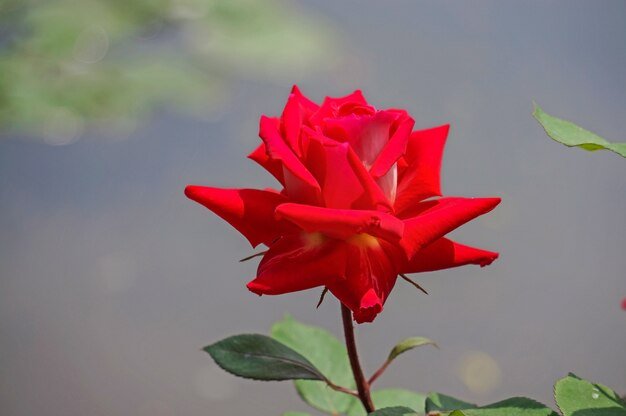Roses have long been symbols of beauty, elegance, and strength. Among the many stories surrounding these magnificent flowers, the tale of The King’s Roses carries a unique blend of history, tradition, and modern relevance. Within this narrative lies the role of the North West Beekeepers Association (NWBKA), a key player in preserving both natural and cultural heritage. This article explores the enchanting story of The King’s Roses, the NWBKA’s contributions, and how these elements intertwine to create a legacy that thrives today.
The Legacy of The King’s Roses
The origin of The King’s Roses is steeped in royal history and horticultural pride. In medieval England, roses were not merely flowers; they symbolized dynasties, allegiances, and power. The War of the Roses, a series of dynastic conflicts between the House of Lancaster (red rose) and the House of York (white rose), epitomized the flower’s deep political significance.
Over the centuries, the symbolism of roses transformed. They came to represent unity, love, and devotion. The King’s Roses, in particular, became a cherished emblem, often associated with royal gardens and celebrations of national pride.
The NWBKA: Guardians of Nature’s Pollinators
While roses have captivated human hearts for generations, their existence is deeply tied to the natural ecosystem, particularly the role of pollinators like bees. This is where the North West Beekeepers Association (NWBKA) enters the picture.
Founded to promote sustainable beekeeping practices, the NWBKA is dedicated to protecting and maintaining biodiversity. Their mission is not only about conserving bee populations but also about fostering awareness of their importance to plants, including roses.
How the NWBKA Supports The King’s Roses
1. Pollination Efforts
Bees are indispensable for pollination, and roses are no exception. NWBKA’s efforts in promoting healthy bee populations directly impact the flourishing of roses, including those celebrated as The King’s Roses. By creating pollinator-friendly environments and encouraging sustainable practices, they ensure that these iconic flowers continue to thrive.
2. Educational Outreach
The NWBKA organizes workshops and educational events to raise awareness about the connection between bees and plants. Through these initiatives, they inspire gardeners, landscapers, and communities to cultivate roses and other plants in harmony with nature.
3. Collaborations with Horticulturalists
The NWBKA collaborates with horticulturalists and garden enthusiasts who cultivate The King’s Roses. Together, they develop strategies to enhance the health and resilience of roses through bee-friendly practices, such as planting companion flowers and avoiding harmful pesticides.
The Magic of Bees and Roses: A Perfect Partnership
The relationship between bees and roses is one of mutual benefit. Bees are drawn to roses for their nectar and pollen, while roses depend on bees for pollination to ensure healthy growth and reproduction. This partnership is a testament to the interconnectedness of nature and the importance of preserving such relationships for future generations.
The King’s Roses, often grown in royal gardens and prestigious horticultural displays, are a shining example of what can be achieved when this partnership is nurtured. The NWBKA’s role in supporting bee populations and educating the public enhances the health and vitality of these iconic flowers.
Preserving Tradition and Nature
The King’s Roses are more than just flowers; they represent a rich cultural heritage. Similarly, the NWBKA is more than just a beekeeping association; it is a steward of the environment. Together, they embody the union of tradition and modern sustainability.
Ways to Get Involved
For those inspired by the story of The King’s Roses and the NWBKA, there are many ways to contribute to this blossoming tradition:
1. Join the NWBKA
Becoming a member of the NWBKA offers the opportunity to learn about beekeeping, participate in community projects, and support local pollinators.
2. Cultivate Bee-Friendly Gardens
Plant roses alongside other pollinator-friendly plants to create a haven for bees. Avoid using pesticides and instead opt for natural pest control methods.
3. Support Local Initiatives
Attend NWBKA events, donate to their programs, or volunteer in their projects to make a tangible impact.
4. Spread Awareness
Educate friends, family, and your community about the importance of bees and their connection to plants like The King’s Roses. Sharing knowledge is a powerful tool for change.
The Future of The King’s Roses and NWBKA
As environmental challenges grow, the work of organizations like the NWBKA becomes even more vital. The King’s Roses, a symbol of history and beauty, rely on healthy ecosystems to continue their legacy. By supporting bee populations and promoting sustainable gardening, the NWBKA plays a crucial role in ensuring a future where roses and pollinators coexist and flourish.
Conclusion
The story of The King’s Roses and the NWBKA is a testament to the harmony between nature and tradition. These stunning flowers, emblematic of royal heritage, owe much of their vitality to the diligent work of bees and the NWBKA’s dedication to preserving pollinator populations.
By joining forces with the NWBKA, individuals can contribute to a legacy that combines the beauty of roses with the sustainability of nature. Together, we can ensure that The King’s Roses continue to bloom, not just as symbols of the past but as beacons of hope for a harmonious future.










